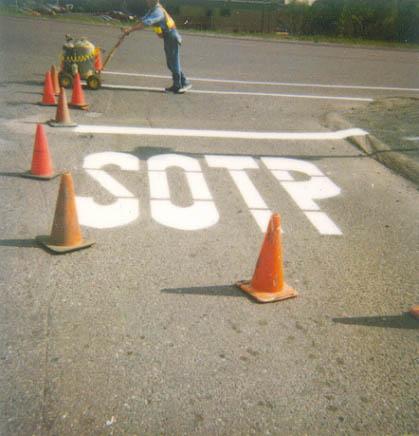The 5 Most Common SEO Mistakes
 Most of these sites were optimized by persons just starting out; SEO beginners not yet familiar enough with the industry to determine SEO fact from SEO fiction. But what's scary is that some of the sites I've seen using incorrect methods have been optimized by so called search engine optimization "experts"? who really should know better.
Most of these sites were optimized by persons just starting out; SEO beginners not yet familiar enough with the industry to determine SEO fact from SEO fiction. But what's scary is that some of the sites I've seen using incorrect methods have been optimized by so called search engine optimization "experts"? who really should know better.
Some common themes develop amongst incorrectly optimized sites. Could YOU be making the same errors with your site? To find out, let's look at the five most common search engine optimization mistakes:
- Non Utilization of the Title Tag
How many times have you looked at a web site where the browser title reads "Welcome to [company name]'s web site"? or simply "[Company Name]"?? Nothing wrong with that, I hear you say? Well if you want to achieve high search engine rankings, there's PLENTY wrong with it.
You see, while it may not be common knowledge amongst web designers, most search engines index the content of title tags and consider it to be one of the most important factors in their relevancy algorithm. What you place in your title can make or break your ranking for particular search terms on the various engines. If you don't include your most important search phrases within your title tag, you are overlooking a vital opportunity in your quest for higher search rankings.
Having said this, you should try and keep your title tag to a maximum of 200 characters, as that is the average limit most search engines will truncate to. If you really insist on including your company name in your title and you're willing to sacrifice good keyword real estate to do so, put it at the very end of the tag, because search engines give more relevancy -weight"? to content at the start of your tag.
- Use of Untargeted Keywords and Phrases
Another common mistake made by webmasters and SEO learners is their choice of keywords placed in the META keyword tag. Sure it might seem logical to target the word -printers"? if you run a printer repair business in Ohio, but think about it "“ even if you succeeded in ranking well for such a competitive term (you won't), how many of the people visiting your site as a result of this search would leave as soon as they saw your home page? That's right, most of them. All the people who wanted to buy printers, all the people looking for businesses outside Ohio, all the people not looking specifically for printer repairers.
Does it become clear now that targeting such a generic word is a waste of time? What you need to do instead is optimize your site for search terms and phrases that are highly targeted to your precise business. Use a tool such as Wordtracker (keyword location software) to find what people are actually typing in to the search engines to find goods and services similar to yours and concentrate on ranking well for those terms. The more qualified your site visitors are, the more likely you are to convert those visitors into paying customers.
- A Lack of Optimized Body Text
This one is very common. How often do you visit a home page that is made up entirely of graphics? You know the ones "“ they consist of an enormous Flash file or maybe a large logo or a montage of images, but the thing they have in common is a distinct lack of text. Think they look professional? Think again. No matter what you read or hear, if a site has no text on the home page, it hasn't been correctly optimized and has little chance of ranking well in the search engines. Now that's unprofessional in my opinion.
Beginner SEO's often make the mistake of creating an optimized title tag and META tags and believing their work is done. WRONG. If you want a web site to rank well in the search engines, you need to give them what they want to see "“ visible content that is optimized just as well as the invisible content. That means adding keyword-filled body text to any page you want ranking high. Why? Because most search engines can't index images. Some engines don't even index META tags anymore. So a site with no visible content becomes effectively invisible to a search engine and has almost no chance of appearing in the rankings for logical searches.
Also, search engine algorithms have become smarter and are now checking that sites contain highly relevant content before including them in their index. If you expect to rank well for a particular keyword or phrase, it's not too much to expect to find that keyword or phrase within your site is it?
- Submitting to 1,000 Search Engines
I love this one. I've lost count of how many banner ads or web sites I've seen boasting -We'll submit your site to 1,000 search engines!"? I can't believe the hype is still prevalent that you need to submit a web site to thousands of search engines in order to receive traffic. This is just NOT TRUE.
In fact, studies show that approximately 90% of search traffic still comes from the 10 major U.S. search engines and directories (listed here). Companies that advertise submission to thousands of search engines are usually including in that list minor engines or directories that utilize the databases of major engines anyway (so don't require submission) or a large number of Free For All (FFA) sites. Submitting your site to FFA pages can damage your site's reputation in the search engines, because they consider FFA sites to be of very low quality and utilizing spamdexing techniques in an attempt to falsely inflate a site's link popularity. I've even seen examples of sites being banned from a search engine for having their pages listed on FFA sites by ill-informed webmasters without the site owner's knowledge.
If you are targeting specific geographic markets, you might like to submit your site to the most popular regional search engines in those countries, but the fact is that most people worldwide continue to use the U.S. versions of search engines such as Yahoo and AltaVista despite the fact that there are local versions available. The bottom line? Get your site listed on the 10 most popular search engines and directories and you will have the major worldwide traffic sources covered.
- Resubmitting Too Soon and Too Often
So you've optimized your site and submitted it to the most important search engines. But it's been three weeks and you haven't received any traffic. Time to resubmit, right? WRONG. Depending on the search engine, they can take up to twelve weeks to include your site in their index. Each search engine and directory work to their own time frame. You need to check their average submission times (a chart is here) and be patient.
So when you're in, what then? You should regularly submit to ensure you're ranked above your competitors, maybe once a month or once a week, right? WRONG AGAIN. Once you're in a search engine's database, there is no need to resubmit your site. It's pointless actually, because they already know about your site and their robot is scheduled to revisit and reindex all sites in the database on a regular basis. Resubmitting wastes everybody's time and can actually get your URL permanently banned from a search engine for -spamdexing"?.
The only time you need to resubmit your site to a search engine is if your URL changes or if your domain suddenly drops out of their database entirely. NOT if your ranking drops, NOT if your content changes, but if the domain is actually nowhere to be found in the index (this can happen from time to time as the search engines Spring clean their databases). A good SEO will monitor your rankings regularly (monthly is fine) and only resubmit when absolutely necessary.
So those are the five most common SEO mistakes. Any sound familiar? Don't worry, you're in good company. Now that you've recognised the problem areas and are better equipped with the correct information, you'll be able to reverse the damage.
Contact us right now for a free quote and we'll help you get your web site in order.

